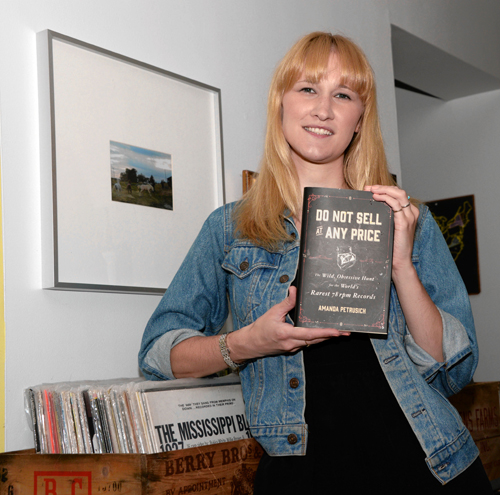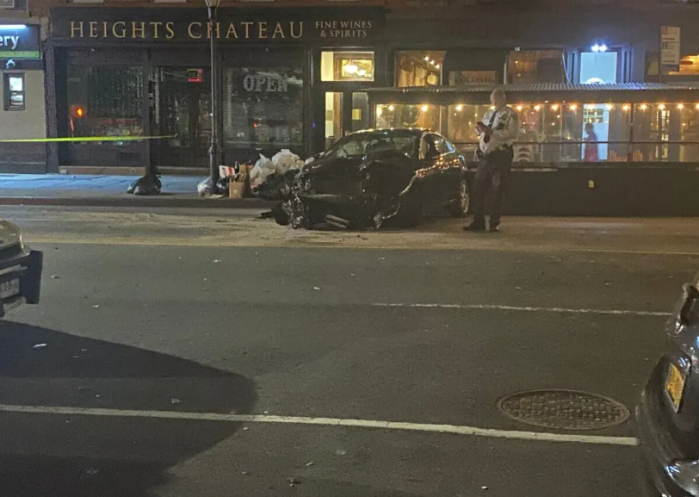This book is the vinyl word on obsessive record collectors.
A Cobble Hill music writer has penned a new book chronicling people who collect 78 rotations-per-minute records (or 78 RPMs) — an antiquated form of vinyl that generally dates from before the 1960s. The music on the albums is part of the allure, she said — many of the artists on them have been long forgotten — but people aren’t hunting the records down for their sound quality.
“People will go on and on about the superior sound of vinyl, but these records don’t sound great,” said Amanda Petrusich, author of “Do Not Sell at Any Price: The Wild, Obsessive Hunt for the World’s Rarest 78rpm Records. “They sound kind of like the records got buried in the back yard and are being broadcast from underground.”
These records are rare in part because of their age, but also because of the poor quality of their manufacturing, Petrusich explained. Many of the recorded artists were African-American blues artists, and their records were often pressed on the cheapest material possible. Add to the mix the rough quality of record players at the time, and it is easy to see why so few of the albums have survived.
Petrusich began researching 78 collectors after writing a piece for Spin magazine about the more mainstream resurgence of vinyl. Someone she talked to for that story recommended that if she really wanted to find the true vinyl freaks, 78 collectors were the most dedicated of all. She started to do some digging, but initially found the insular community a tough scene to infiltrate.
“Parachuting in as a journalist and as a younger woman, there were a lot of challenges,” she said. “It was really obvious I was an outsider, even though I had been working as a music critic for 10 years.”
In her book, Petrusich explores not just the personal reasons people collect 78s, but also delves into the neurological and biological sensations that makes chasing down rare records so addictive. Part of the allure, she said, is the ability to be the sole owner of a piece of music in an era where millions of songs are accessible with the click of a mouse.
The records are so rare, and often times so expensive, that there is a high bar of entry for anyone wishing to start collecting them. It takes dedication and money — a lot of money. One 78 recently sold for $37,100, Petrusich said.
Petrusich will launch her book on July 11 at BookCourt in Cobble Hill, and two of the collectors she profiles in the tome will speak about their collections and play some of their 78 records. The author said she is excited for the audience to learn straight from the experts, and to hear the records they put so much time and money into finding.
“Even if people are into this music, it’s possible they’ve never seen a 78 or had a 78 played in front of them,” she said. “It’s very spectral and ghostly.”
“Do Not Sell at Any Price: The Wild, Obsessive Hunt for the World’s Rarest 78rpm Records” launch at BookCourt [163 Court St. between Pacific and Dean Streets in Cobble Hill, (718) 875–3677, www.bookcourt.com]. July 11 at 7 pm. Free.
























